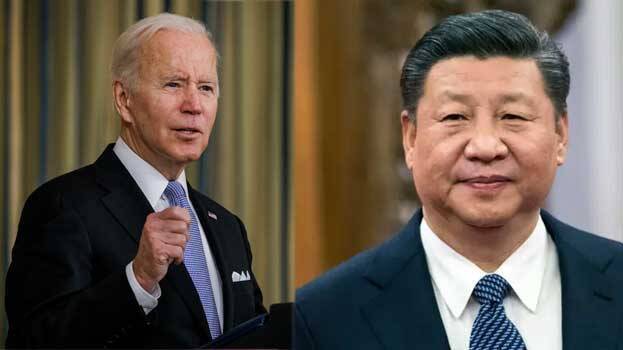President Biden stated on Monday that if Taiwan were attacked by mainland China, the US would defend it, but that America’s attitude toward the island had not changed.
When asked if the US will act militarily to defend Taiwan at a news conference in Tokyo, Biden answered, “That’s the commitment we made.” He noted, while speaking with Prime Minister Fumio Kishida, that the United States retains a one-China policy, recognizing Beijing as China’s government, but that the concept that Taiwan can be seized by force is unsuitable.
China considers the self-governing island to be part of its territory, and Biden’s comments were quickly dismissed as interference in its internal affairs by the Chinese Foreign Ministry.
Similar statements by Biden last year, which appeared to violate America’s long-standing policy of strategic ambiguity, that is, not telegraphing how Washington may respond to an invasion of Taiwan, were retracted by the White House.
“I think it is unlikely that allies will perceive this as a gaffe, even as the White House insists that there has been no change in policy,” said Corey Wallace, a Japanese political researcher at Kanagawa University near Tokyo.
Tokyo’s past apprehension about speaking out on Taiwan has dissipated as Beijing has increased its pressure on the island, and Japanese officials have publicly urged Tokyo to join Washington in defending Taiwan.
The invasion of Ukraine by Russia has heightened concerns over Taiwan, as Tokyo thinks that Russia’s actions may encourage Beijing.
Biden and Kishida issued a joint statement in which they expressed their worries about China’s activities, ranging from the modernization of its nuclear weapons to human rights issues in China’s far-western Xinjiang province to the non-transparent signing of a security deal with the Solomon Islands.
Biden also introduced the Indo-Pacific Economic Framework for Prosperity, a new trade deal (IPEF). The agreement, which was signed by the United States and 12 Asian countries, aims to ensure industrial supply, reduce carbon emissions, and combat corruption.
Japan has made it plain that it would like the United States to rejoin a trade accord that Trump abandoned in 2017. Originally known as the Trans-Pacific Partnership, the TPP was renamed and ratified without the United States in 2018.
While Biden was in town, both Seoul and Washington were concerned that North Korea would test launch an intercontinental ballistic missile or explode an atomic weapon.








